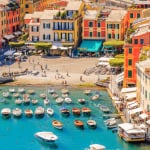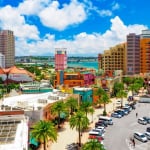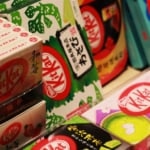Name: Daegu National Science Museum
Address: 20, Techno-daero 6-gil, Yuga-myeon, Dalseong-gun, Daegu, South Korea
Official and related website URL: https://www.dnsm.or.kr/
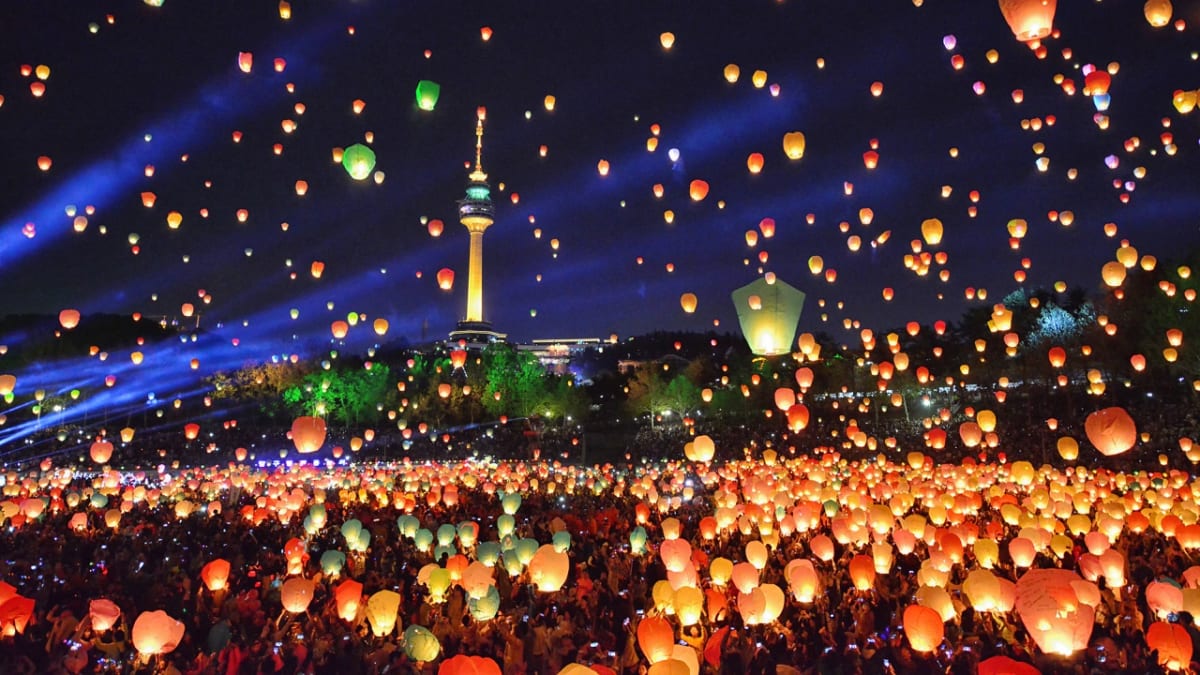
The hottest city in Korea! 20 tourist spots where you can enjoy nature and history in Daegu
Daegu Metropolitan City is known as the "third largest city in Korea" after Seoul and Busan, two of Korea's leading tourist destinations. The name Daegu means "wide plains, large hills," and as its name suggests, it
is a big city with abundant nature. As it is a basin surrounded by mountains, it is characterized by hot summers and very cold winters.
Taking advantage of this terrain, "Daegu apples" are cultivated and are among the most popular in Korea. In this article, we will introduce 20 carefully selected tourist spots that are full of charm in Daegu.
table of contents
[x] close
The hottest city in Korea! 20 tourist spots where you can enjoy nature and history in Daegu
- 1. Daegu National Science Museum
- 2. Arte Suseong Land
- 3. Hyeonpung Gwaksi's Twelve Jeongryogak
- 4. Daegu Otgol Village
- 5. Daegu Peace Market Takdongjip Street
- 6.Biseulsan Natural Recreation Forest
- 7.83 Tower
- 8. Suseong Artpia
- 9. The ARC
- 10. Daegu Arboretum
- 11. Dalseong Korea-Japan Friendship Center
- 12. Donghwasa Temple Stay
- 13. Dodong Seowon
- 14. Private Museum of Oriental Medicine
- 15. Daegu Gyesan-dong Cathedral
- 16. Daegu Yangnyeongsi Museum of Oriental Medicine
- 17. Seomun Market
- 18. Palgongsan Natural Park
- 19. Daegu Spavalley
- 20. Daegu National Museum
- ◎Summary
1. Daegu National Science Museum
Among the science museums in Daegu, the National Daegu Science Museum is known for being particularly large. The museum is divided into several areas, including the planetarium projection hall, special exhibition room, children's hall, science and technology hall, and industry hall, and is popular for its exhibits that never fail to entertain visitors. You can learn by
actually touching and experiencing things, so it's great to feel science in a more real and personal way. Another attraction is the wide range of experience programs, including programming, astronomy observation, science experiments, and toy making, which are also popular in Japan. There are plenty of things that children can do while having fun, so be sure to give them a try.
2. Arte Suseong Land
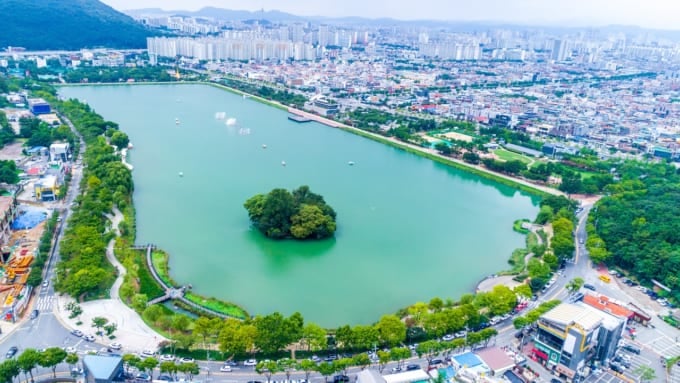
Suseong Pond was built in 1925 during the Japanese colonial period to supply water for agricultural use. In fact, the pond was built by Japanese settlers who had immigrated from Gifu Prefecture. Suseong Pond, which took about 10 years to build, enabled Daegu to escape the drought and flood damage that had plagued it until then.
"Arte Suseong Land" is a theme park built around Suseong Pond. It is now a popular tourist spot for tourists as well as a place of relaxation for Daegu residents. The amusement park has more than 20 types of attractions, from go-karts for small children to thrilling rides that will excite adults. There is also an experience farm where you can interact with animals
and an ice rink, so it is an attraction that can be enjoyed by a wide range of ages, regardless of gender or age. You can take a boat ride on Suseong Pond or enjoy the attractions at the amusement park to your heart's content. You can also join the students who come to the sketching competition and draw beautiful scenery. It will surely be a wonderful memory.
There is a fountain show on the waterfront where light and water come together, and the night show is especially a must-see. Be sure to time your visit accordingly. There are also high-end restaurants and stylish cafes in the area, making it a great place for a date.
Name: Arte Suseong Land
Address: 35-5 Yonghak-ro, Suseong-gu, Daegu, South Korea
Official and related website URL: http://suseongland.co.kr/
3. Hyeonpung Gwaksi's Twelve Jeongryogak
The 12 Jeongryokaku of Hyeonpung Gwak is a historic structure that has been designated as a cultural asset of Daegu Metropolitan City. A Jeongryok is when the government builds a gate in a village as a reward for a special deed. The Hyeonpung Gwak family is a very rare family that has been given 12 Jeongryokaku. (The "Hyeonpung" in front of the family name indicates the family's main family.) The 12 Jeongryokaku of Hyeonpung Gwak is a building that has been built as a historic structure that has been designated as a cultural asset of
Daegu Metropolitan City. (The "Hyeonpung" in front of the family name indicates the family's main family.) The 12 Jeongryokaku of Hyeonpung Gwak is a building that has been built as a historic structure. (The "Hyeonpung" in front of the family name indicates the family's main family.) The 12 Jeongryokaku of Hyeonpung Gwak is a building that has been built as a historic structure that has been built as a historic asset of Daegu Metropolitan City. The 12 Jeongryokaku of Hyeonpung Gwak is a building ...
Name: Hyeonpungkukshi Twelve Jeongjeongak (현풍곽씨십이정려각)
Address: 3, Jedong-gil, Hyeonpung-myeon, Dalseong-gun, Daegu, Republic of Korea
4. Daegu Otgol Village

Long ago, the yangban (class nobles) were at the top of the social hierarchy. Daegu Okgol Village is a tourist spot where you can get a glimpse into the lifestyle of the yangban. This village is also known as the Gyeongju Choi Clan Head House, and as the name suggests, it was built by the Choi Clan.
On the way to the village, you will be greeted by 350-year-old zelkova trees. They are now protected as protected trees, but at the time they were planted to prevent evil spirits from entering the village. You can even feel the power of the large zelkova trees standing in a solemn atmosphere.
Some of the houses in the village have been renovated, but most remain as they were at the time. Among them, the oldest house in Daegu, Baekbul Gotaek, is an important resource for research on the lives of yangban and has been designated as a city folk resource. Don't miss the experience corner where you can try on hanbok and play folk games.
ame: Daegu Otgol Village (대구 옻골마을)
Address: 195-5 Otgol-ro, Dong-gu, Daegu Metropolitan City, South Korea (Dunsan-dong)
5. Daegu Peace Market Takdongjip Street
Deep-fried gizzards are a famous local delicacy in Daegu. In Korean, they are called "Daktongjip." In Pyeonghwa Market, known as the kitchen of Daegu citizens, there used to be a market selling chicken.
One day, a store owner who had a lot of leftover gizzards and didn't know what to do with them, made them into tempura and served them, which became a big hit. The word spread in an instant, and many customers came to the store looking for gizzard tempura. After that, the number of gizzard specialty stores gradually increased, and this place eventually came to be called "Daktongjip Street."
Gizzards are also popular among Japanese people, so this is a must-try. You can enjoy various flavors at each store, such as garlic soy sauce flavor and yangnyeom flavor, so it's also recommended for eating around. It goes well with beer and shochu, and the reasonable price is also attractive.
Name: Daegu Pyeonghwa Market Takdongjip Street Address: 10, Oyang-ro 9-gil, Dong-gu, Daegu Metropolitan City, South Korea (Shinmam-dong)
6.Biseulsan Natural Recreation Forest
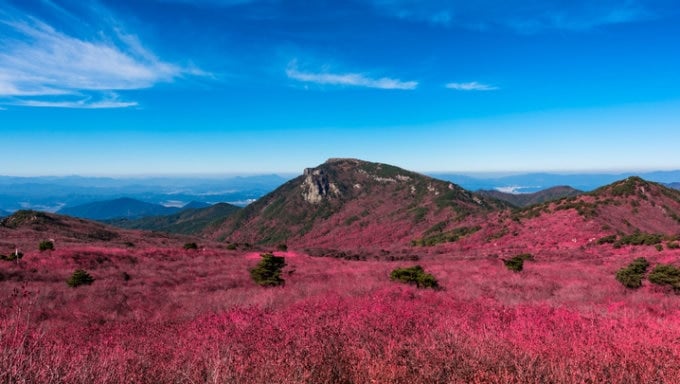
Mt. Biseul, one of the most relaxing spots in Daegu, is crowded with many tourists all year round, fascinated by its beauty. It is not very high, so even beginners can easily climb it. It is a tourist spot where you can enjoy the rich nature of Daegu, such as rocks with unusual shapes, clear valleys, and flowers blooming along the hiking trail.
In spring, many azaleas bloom, and the foot of the mountain is dyed pink as if a carpet was laid. The Azalea Festival held in April is particularly popular, and is said to be the most popular of the year. In summer, enjoy camping with a river and barbecue surrounded by fresh air and water.
In autumn, trekking while viewing autumn leaves is recommended. In winter, the Ice Festival is held, and you can enjoy ice art created by nature, such as ice towers, caves, and icicle hills. Mt. Biseul is beautiful in any season, so what kind of sightseeing do you prefer?
Name: Biseulsan Natural Recreation Forest
Address: 230, Recreation Forest-gil, Yuga-myeon, Dalseong-gun, Daegu Metropolitan City, South Korea
Official and related website URL: http://www.dssiseol.or.kr/pages/sisul/page.html?mc=1029
7.83 Tower

If you want to enjoy a spectacular view, head to the symbol of Daegu, 83 Tower. The tower not only has an observation deck, but also various facilities such as an art museum, ice rink, amusement park, and restaurants. It is called 83 Tower because it has 83 floors, but locals in Daegu also call it Daegu Tower. A
must-visit is the revolving restaurant on the top floor. Enjoying a meal while looking out at the beautiful night view will add to the romantic atmosphere. As it is often used as a place for proposals, it is said to be very crowded on Christmas and Valentine's Day. Be careful.

Name: 83 Tower (대구타워)
Address: 200, Duryu Park-ro, Dalseo-gu, Daegu Metropolitan City, South Korea (Duryu-dong)
Official and related website URL: http://www.83tower.kr/index.htm
8. Suseong Artpia
Suseong Artpia, which opened in May 2007, is Daegu's leading art center. Each has its own specialized space and is divided into performances, exhibitions, and art academy. World-famous operas and musicals are regularly held here, so if there is a performance you are interested in, it is a good idea to go and see it. The
building itself of Suseong Artpia is also worth seeing. The exterior, which is modeled after Mt. Muhaksan in Daegu, is said to look like a crane spreading its wings and preparing to take off when viewed from the front. From the side, it is designed to look like a ship, representing the fact that there was originally a pond here. If you look at it while thinking about such an episode, you may be able to enjoy it in a different way.
Name: Suseong Artpia
Address: 180, Muhak-ro (Jisan-dong), Suseong-gu, Daegu Metropolitan City, South Korea
Official and related website URL: http://www.ssartpia.kr/
9. The ARC
Since its opening in 2012, The ARC has been attracting attention as both a work of art and architecture. Standing alone in the middle of nature, this building looks like a UFO at first glance, but it was created with water as its theme. Inside, there are many things to see, including an exhibition space, art gallery, video theater, and observation deck. There is
a lot of nature in the surrounding area, and there are also cycling courses, so it is also recommended to visit for a stroll. The night illuminations are also beautiful, so be sure to check it out as one of the Daegu night view spots.
Name: The ARC
Address: 57, Gangjeongbon-gil, Daseong-gun, Daegu, South Korea
Official and related site URL: http://cafe.naver.com/ilovethearc
10. Daegu Arboretum
Daegu Arboretum was built on a landfill site to solve environmental problems. It is a place of relaxation for the citizens of Daegu, boasting a beautiful landscape that makes it hard to believe that there was once a huge amount of garbage there. The vast garden, covering an area of approximately 25 hectares, features 21 types of gardens, including a coniferous garden, a broadleaf garden, a flowering tree garden, a wild flower garden, a medicinal plant garden, and a dye garden, with approximately 60,000 trees, 130,000 plants, and over 2,000 cacti planted.
Daegu Arboretum regularly holds nature experience classes for children. It is often used for school trips and field trips, and you can often see children visiting for their independent research projects during the summer holidays. Why not enjoy the refreshing scent of greenery while admiring the cute flowers at this urban oasis that provides healing to people?
Name: Daegu Arboretum (대구수목원)
Address: 342, Gaam-ro, Dalseo-gu, Daegu, Republic of Korea (Daegok-dong)
11. Dalseong Korea-Japan Friendship Center
Dalseong Korea-Japan Friendship Museum is a tourist spot built to honor the philanthropic ideas of General Kim Chung-seon and to promote friendship between Japan and Korea. Did you know that General Kim Chung-seon was actually a Japanese man named Sayaka? He is said to have naturalized as a Korean citizen during the Imjin Waeran (the Bunroku-Keicho War) and made a great contribution while fighting in the Korean army. That's why many Japanese tourists still visit Dalseong Korea-Japan Friendship Museum. Inside
the museum, there are many facilities and historical materials where you can enjoy the cultures of both Japan and Korea. The beautiful Japanese garden is a must-see. Dalseong Korea-Japan Friendship Museum is an important spot for the history and future of both Japan and Korea. It's definitely one to visit.
Name: Dalseong Korea-Japan Friendship Center (달성한일우호관)
Address: 206, Yurok-gil, Gachang-myeon, Dalseong-gun, Daegu Metropolitan City, Republic of Korea
Official and related site URL: http://www.dskjfriend.kr/main
12. Donghwasa Temple Stay
Donghwasa Temple, located in Palgongsan Mountain on the outskirts of Daegu, is a historic temple founded in 493. There are many things to see within the temple grounds, such as the "Unification Medicine Buddha Statue," which prays for the unification of North and South Korea, the "Daewungjeon Hall," which is rumored to have a gold nugget hidden inside, the Geumgang Stairs, and the stone pagoda. One thing you should definitely try at this temple is the temple stay program. This is a tourist program where you can experience Zen meditation, tea ceremony, lantern making, meditation, and more while staying at the temple. You can do temple
stays in Japan, but it's also a good idea to try it in a foreign country. This is a chance to taste Korean vegetarian cuisine. Another attractive feature is that they offer experiences that suit your needs, such as custom-made programs for groups and relaxing programs where you can just relax.
Name: Donghwasa Temple Stay (동화사)
Address: Donghwasa 1-gil 1 (Dohak-dong), Dong-gu, Daegu Metropolitan City, South Korea
Official and related website URL: http://donghwasa.templestay.com/
13. Dodong Seowon
A "seowon" is a private school during the Joseon Dynasty. Doto Seowon is a historic school that continued to exist even after the abolition of seowons was announced, and is known as one of the "Five Great Seowons in Korea." It was originally built at the foot of Mt. Biseul, but was burned down during the Imjin War (1521-1592). It was rebuilt in its current location in 1605.
A must-see at Doto Seowon is the 400-year-old ginkgo tree, which is also its symbol. It is said that ginkgo trees were often planted on the grounds of seowons, as Confucius, the founder of Confucianism, preached under a ginkgo tree. Not only is it impressive, but its vibrant yellow color soothes the souls of all who visit.
Name: Dodong Seowon (Dodong Seowon)
Address: 726, Guji Seo-ro, Guji-myeon, Dalseong-gun, Daegu, South Korea
14. Private Museum of Oriental Medicine
Daegu once flourished as a distribution center for herbal medicine. Even today, Daegu is known as the "city of medicine," and many herbal medicine pharmacies and oriental medicine clinics remain. A recommended tourist spot in Daegu is the "Oriental Medicine Museum." This facility
displays medical books, prescriptions, and tools used to prescribe medicines that have been passed down from generation to generation by a family that has run an oriental medicine store for about 90 years. Visitors are also given free health consultations and gifts of herbal medicine tea. It might be a good idea to take this opportunity to find a health method that suits you.
Name: Oriental Medicine Museum (한방개인박물관)
Address: 50-5, Jungang-daero 77-gil, Jung-gu, Daegu Metropolitan City, South Korea (Jonggan-dong)
15. Daegu Gyesan-dong Cathedral
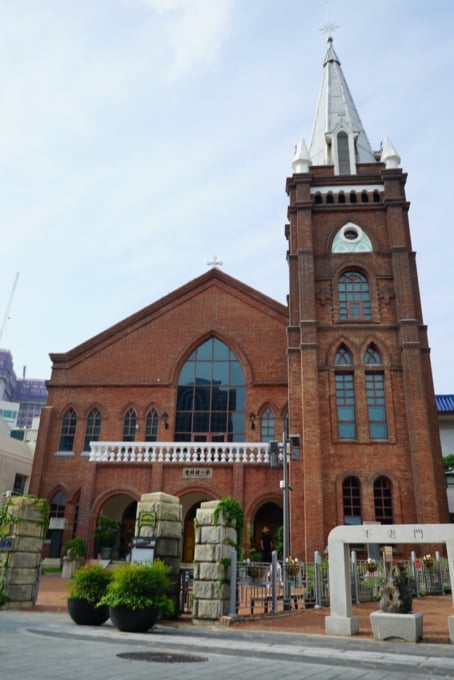
Daegu Gyesan-dong Cathedral, with its beautiful Romanesque exterior, is Daegu's first Western-style building. It was built by a French priest named Robert, and the first cathedral completed in 1899 burned down after just over a year. It was later rebuilt using stained glass and corrugated iron brought from France. The current cathedral was completed in 1902.
The building, which uses Gothic elements in places, is beautiful and well worth seeing. The stained glass of a Korean priest dressed in hanbok is a must-see. Daegu Gyesan-dong Cathedral is a must-see tourist spot unique to Daegu, known as the birthplace of Christianity in Korea.
Name: Daegu Gyesan-dong Cathedral
Address: 10, Seoseong-ro (Gyesan-dong 2-ga), Jung-gu, Daegu Metropolitan City, South Korea
Official and related website URL: http://www.kyesan.org
16. Daegu Yangnyeongsi Museum of Oriental Medicine

If you want to learn about the 350-year-old Yangnyeong Market, we recommend the Daegu Yangnyeongsi Museum of Oriental Medicine. This is Korea's only wholesale market for traditional Korean medicine ingredients, and there are many programs available that allow you to learn about traditional Korean medicine culture while having fun.
The program where you chop up traditional Korean medicine ingredients and wrap them in paper called "yakji" is very popular as it is a rare experience that you can't get anywhere else. There are also many relaxation experiences such as tasting traditional Korean medicine tea and traditional Korean medicine foot baths. There are many exhibits that use animation and video, so even children will enjoy it.
Name: Daegu Yangnyeongsi Museum of Oriental Medicine (대구약령시한의약박물관)
Address: 49, Dalgubeol-daero 415-gil (Namseong-ro), Jung-gu, Daegu Metropolitan City
Official and related website URL: http://www.daegu.go.kr/dgom/index.do
17. Seomun Market
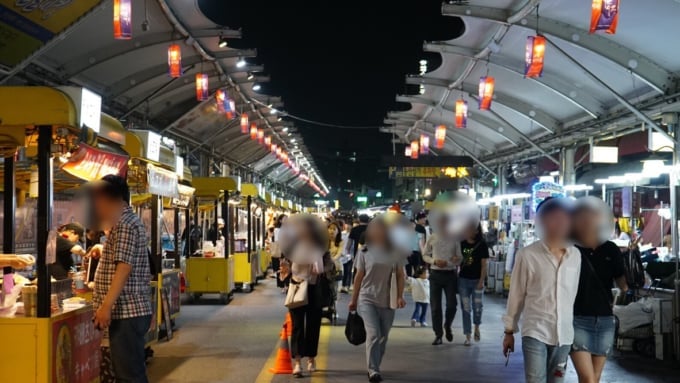
If you're going on a food tour of Daegu, you can't miss Seomun Market. Some stores are open from lunchtime, but the night market is bustling with many people, from locals to tourists. Just walking around is fun, as there are so many different kinds of things on sale, including Korean food like tteokbokki and guksu, steaks, seafood, ice cream, glowing toys, and accessories.
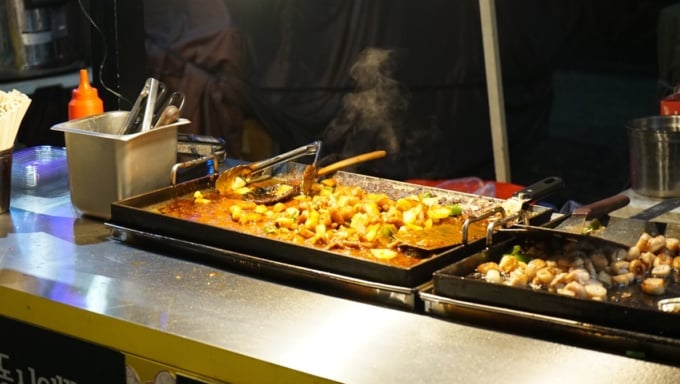
Name: Seomun Market
Address: 45, Gunjang-ro 26-gil, Jung-gu, Daegu
Business Hours: Sunday-Thursday: 19:00-23:00 Friday-Saturday: 19:00-23:30
Official and related website URL: http://www.nightseomun.com/html/index.php
18. Palgongsan Natural Park
Palgongsan Natural Park is a natural wonderland that spreads out on the outskirts of Daegu. Palgongsan is famous as a center of Buddhist culture, and is also known as a mystical spot dotted with ruins such as the Gwanbong Stone Seated Buddha Statue and Bulgulsa Temple. There is a cable car that goes all the way to the top, so it's easy to climb up. The spectacular view of
Daegu from an altitude of 880m is definitely worth a visit! You're sure to be moved by the beautiful scenery surrounded by rich nature. In spring, the azaleas that color the surroundings are beautiful, and in autumn, you can enjoy viewing the autumn leaves at Palgongsan. Palgongsan Natural Park, where you can enjoy nature in every season, is a tourist spot full of charm that you'll want to visit again and again.
Name: Palgongsan Natural Park (팔공산자연공원)
Address: 229 Gatbawi-ro (Jinin-dong), Dong-gu, Daegu Metropolitan City, South Korea
Official and related website URL: http://gbpalgong.go.kr/jpn/main.htm
19. Daegu Spavalley
Daegu Spavalley, which opened in 2003, offers hot springs, saunas, swimming pools, and more. It is especially recommended for family trips, as it has a wide range of facilities for children to enjoy, such as bath pools, kids' pools, and outdoor water parks, as well as accommodation and campsites. It also
has relaxation facilities for adults, such as jimjilbang, which is said to have beauty benefits, doctor fish, and aromatherapy, so it is a good place to visit with your partner or friends. A new facility, Nature Park, opened in March 2017, making it even more popular.
Name: Daegu Spavalley
Address: 891, Gachang-ro, Gachang-myeon, Dalseong-gun, Daegu, South Korea
Official and related website URL: http://www.spavalley.co.kr
20. Daegu National Museum
The National Daegu Museum preserves the distinctive cultural heritage of Daegu and the Gyeongsangbuk-do region. It is the perfect tourist spot to learn how the city of Daegu was built. In addition to three exhibition rooms, the museum also has a library and study room, and various cultural events are held here.
There are plenty of hands-on programs for children to enjoy, so it's perfect for sightseeing with children. It's also recommended as the starting point for sightseeing in Daegu. If you learn about the history and culture of Daegu before sightseeing, you'll surely discover new charms.
Name: National Daegu Museum (국립대구박물관)
Address: 321 Cheongho-ro (Hundam-dong), Suseong-gu, Daegu Metropolitan City, South Korea
Official and related website URL: daegu.museum.go.kr
◎Summary
Daegu is a wonderful city that carefully preserves and passes on its ancient history and culture. Although it is a big city known as the "third largest city in Korea," it has a simple and friendly atmosphere that is appealing. It is also great to have a variety of tourist attractions, including warm interactions with the people, delicious food, historical sites, and theme parks. If you want to experience the good old culture of Korea, be sure to visit Daegu.
RELATED ARTICLES
REGIONS
CATEGORIES
FEATURED ON Activities
-
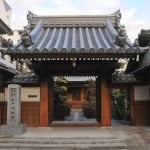
If You Want to Fully Enjoy the Charm of Ibaraki! 7 Sightseeing Spots to Visit
-
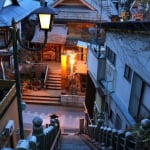
Recommended Sightseeing Spots in Shibu Onsen, Nagano Prefecture! Spend a Relaxing Time
-
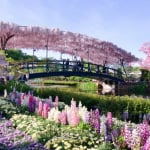
What Makes Ashikaga Flower Park So Special? A Treasure Trove of Photo-Worthy Spots!
-
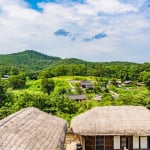
600 Years of Radiant Tradition: Korea’s Historic Villages of Hahoe and Yangdong
-

Two-Colored Seas and a Pink Beach! 4 Must-Visit Spots in North Eleuthera
MOST POPULAR ON Activities
-
 1
1Doha: Must-see Attractions in the Capital of Qatar
-
 2
2Toronto: 10 Things to do in this Picturesque Canadian City
-
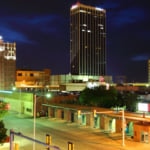 3
3Amarillo: A City Famous for It’s Amazing Canyons, Great History and Music
-
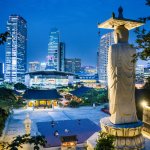 4
4South Korea: Dazzling Scenery, Rich Culture and Fascinating History
-
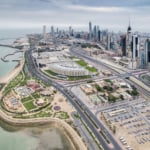 5
5Kuwait: A Country in Middle East Asia Famous for Hot Sand Dunes and Stunning Cityscape

